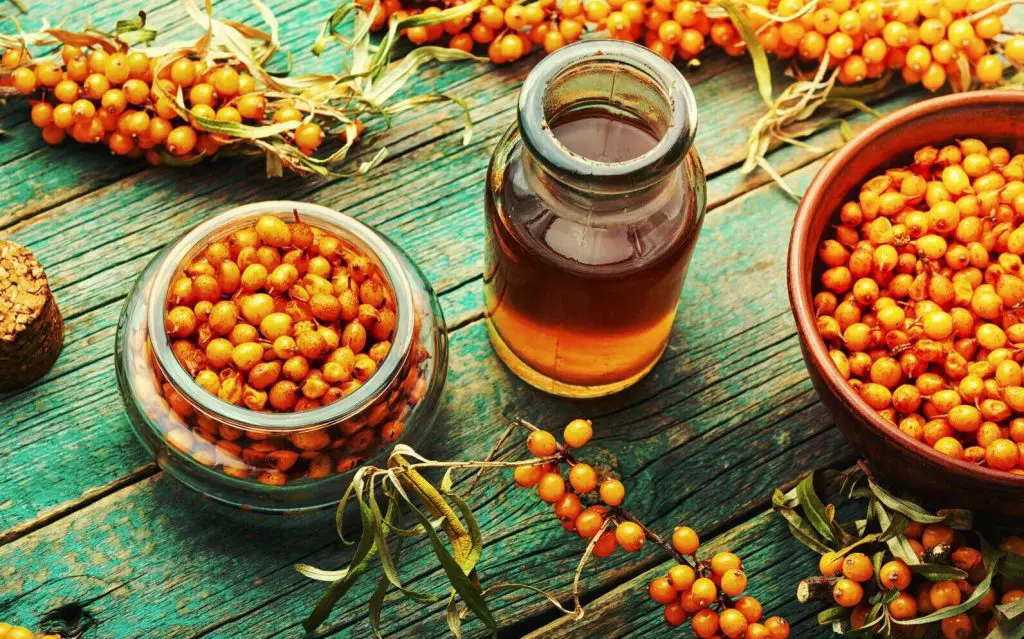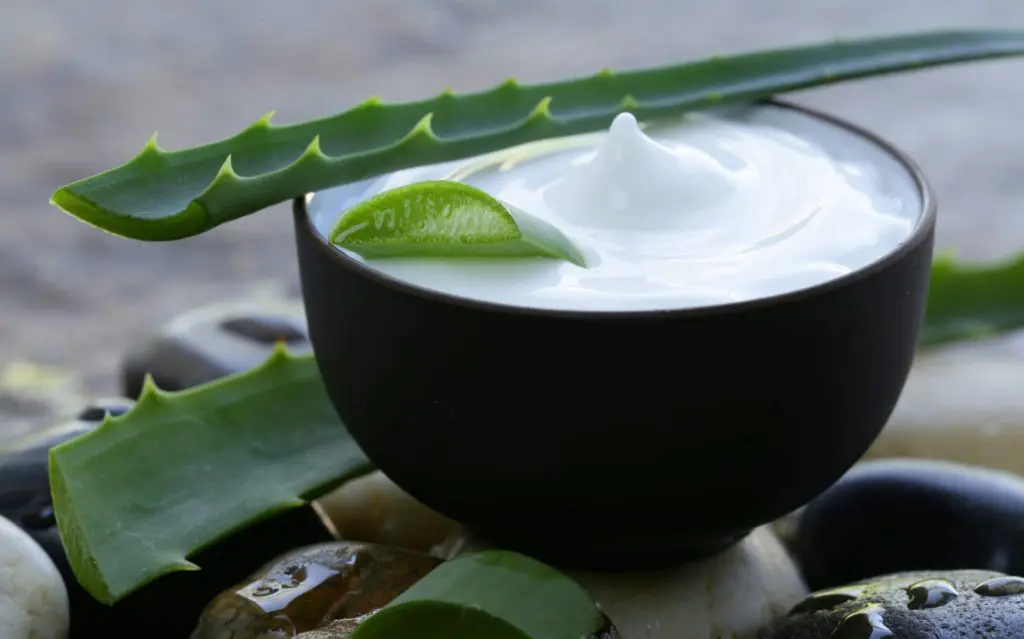Emulsifiers are a key ingredient in natural cosmetics. They are needed to emulsify water and oil together to create emulsions, such as creams and lotions.
There are many natural emulsifiers available that are COSMOS-approved and therefore permitted for use in certified natural and organic cosmetics, which is great news.
However, many of these emulsifiers contain ingredients that are derived from palm oil. Some are made from ‘vegetable sources’ but suppliers find it hard to confirm exactly which vegetable sources. This means there is a high likelihood they are palm oil derived, too.
An example of ingredients used in emulsifiers that are usually palm oil derived are cetyl alcohol and cetearyl alcohol.

What’s wrong with palm oil?
If we think about palm oil purely as an ingredient, there are many positives.
It is a widely used ingredient in cosmetics and has wide ranging properties that add significant qualities to natural skincare products.
Palm oil is also very versatile and many other ingredients can be made using its derivatives, for example emulsifiers.

So from a user perspective, palm oil is an extremely valuable source from which to derive natural skincare ingredients.
However, it is not so much the quality of the ingredient and its derivatives, or the value they offer cosmetics, that people take aversion to. It is more the negative environmental effects that arise as a result of palm oil production.
Palm oil production is one of the biggest contributors of deforestation around the world.
It is negatively affecting the lives of indigenous populations and is a contributing factor to a number of species, most notably orangutans, being put on the endangered list. Not to mention the vast environmental effects and climate change that can be attributed to the cutting down of trees in such high proportions.
To find out more about the environmental effects of palm oil production you can take a look at Rainforest Foundation UK and the Orangutan Foundation.

Many people are therefore campaigning for palm oil to be removed from cosmetics and are actively seeking palm oil-free products. These are products that don’t contain palm oil, as well as its many derivatives, like emulsifiers.
The debate about palm oil is extremely challenging though because it is so ingrained into the economic system across many different sectors, and removing it is not as simple as you might think.
The RSPO (Roundtable on Sustainable Palm Oil) are campaigning for sustainable palm oil production because the complete removal of palm oil from the economic system may present even greater problems.

According to the RPSO, palm oil would need to be replaced by something, but the alternatives (eg coconut) would lead to even greater deforestation because the yield is significantly less. Additionally, despite the challenges faced by indigenous people as a result of deforestation, many indigenous people actually rely on their small palm plantations as a source of income and livelihood.
Whichever side of the argument you agree with – the campaign to avoid using palm oil and remove it from the economic system or the campaign to create a sustainable industry – it is true that something has to be done about it.
At the School of Natural Skincare, we are proud to be Rainforest Defenders through the Rainforest Foundation and we are also proud to be Associate Members of the RSPO.
Through our portfolio of online courses and programs, we are delighted to offer students the opportunity to create their own natural and organic cosmetic products using ingredients that conform to their value system. Students can make their own choices about whether to use ingredients that are derived from palm oil or those that are palm-free.

Palm oil-free emulsifiers and emulsifiers containing sustainable palm oil
Many of our students wish to avoid palm oil in their natural skincare products or want to use sustainable palm oil, and we’re answering the call to do what we can to make that possible. The challenge is that certain palm oil derived ingredients are immensely prevalent in the cosmetics industry and palm oil-free options are still fairly limited.
However, we have identified several options as part of the research and development we conducted for the creation of the Third Edition of our Diploma in Natural Skincare Formulation, including:
- Four palm oil-free natural emulsifiers.
- A palm oil-free gelling agent, perfect for cleansing gels as well as face and body scrubs.
- A palm oil-free natural self-emulsifying emulsifier for oil-to-milk products.
- A natural emulsifier using RSPO-certified sustainable palm.
The full details of these ingredients, guidelines for formulating with them and an example formulation are provided as part of the course curriculum.

Palm oil-free emulsifier: Imwitor 375
Imwitor 375 (INCI: Glyceryl Citrate, Lactate, Linoleate, Oleate) is one of the palm oil-free ingredient options we tested out for the Third Edition of our Diploma in Natural Skincare Formulation. It’s an interesting ingredient because it can be used in both hot and cold process emulsions, and it is ideal for creating fluid, low viscosity emulsions. In the course we provide an example formulation using this emulsifier; a Floral Moisturizing Fluid.
Here is the key information about Imwitor 375:
| Name | Imwitor 375 (INCI: Glyceryl Citrate, Lactate, Linoleate, Oleate) |
| Derived from | Sunflower oil and sugar beet root |
| Function | O/W emulsifier |
| HLB | 11 |
| Certifications | Ecocert, COSMOS |
| Form | Light brown viscous liquid |
| Process/equipment | To be used in either the oil or water phase. Cold process – no need for heat although if heating is required it can be heated up to 80°C |
| Applications | Creates fluid, low viscosity emulsions ideal for body milks and lotions. Combined with thickeners, it can also be used for creams |
| Usage rate |
0.5-3.0% When making creams, additional thickeners need to be added to increase the viscosity |
| Notes |
|
| Suppliers |
Small scale: Naturallythinking (UK), Soapmakers Store (UK), Alexmo Cosmetics (Germany), Aliacura (Germany), Dragonspice (Germany) Large scale: IOI Oleo |
Imwitor 375 is a specialist emulsifier and is currently available to order from the UK and Germany (from suppliers that can ship internationally). While many cosmetic ingredients are easily available in every country, sometimes for specialist ingredients you need to be prepared to order from overseas. Alternatively, why don’t you ask your favorite supplier to start stocking it?
We also provide alternative options to this emulsifier on our Diploma in Natural Skincare Formulation.
If you’d like to see an example of how to formulate using this emulsifier see our formula for a Floral Moisturizing Fluid.
RSPO certified sustainable palm oil
Another option you could consider is rather than seeking out a palm oil-free emulsifier, identify an option that is from certified sustainable palm oil, such as Durosoft PG4L-SG (INCI: Polyglyceryl-4 Laurate).
As we said above, according to the RSPO, taking palm oil out of the economic system may well present more problems than we are currently facing and supporting the sustainable palm oil industry could be one way in which we could work to find a positive solution. The jury is still out on that industry and how sustainable it really is but it is worth looking into and considering further.
What is important to you as a natural skincare formulator?
The first thing we help you to do on our Diploma in Natural Skincare Formulation is identify your personal and/or brand values so you can formulate your natural skincare products with those values in mind.
You may prioritize being palm oil-free and/or you may choose other values too, such as:
- natural
- organic
- ethical
- fairtrade
- vegan
- cruelty-free
- clean
- environmentally friendly/green
- sustainable
- locally sourced
- locally produced
Whatever is important for you and whatever values you hold dear, at the School of Natural Skincare we’re here to give you the opportunity to express them and infuse your natural cosmetic products with them.
By choosing to join the School and enrolling on our Diploma in Natural Skincare Formulation, we can help you to not only make your own natural cosmetic products, but tailor them to suit your needs, preferences, values, beliefs, dreams and desires.
When you can formulate your own natural skincare products you decide what goes in them, you decide the value system they conform to and you decide the intended purpose and result.
So, what is it to be?
Organic, fairtrade, ethical, sustainable, vegan, halal, kosher, green or eco-friendly, package-free, zero-waste, locally sourced, cruelty-free, clean, waterless, palm-free…?
The world is a big place, but as people we’re one global community. At the School of Natural Skincare we’re excited to be part of a global culture of passionate natural and organic beauty lovers all trying to do the same thing – making our own natural and organic beauty products using professional methods with DIY enthusiasm. We all hope to make a positive difference to our health, happiness and the future of our planet.
The intention is there, it is just how you express it that matters and we’ll help you to do that in whatever way feels right to you.
Click here to join the Diploma in Natural Skincare Formulation today and begin your journey!
Want to know more about natural emulsifiers and preservatives?
Discover the most natural emulsifiers and preservatives for your skincare products by downloading our free guide!

Loved reading this article? Make sure to pin it to remember it later on!





